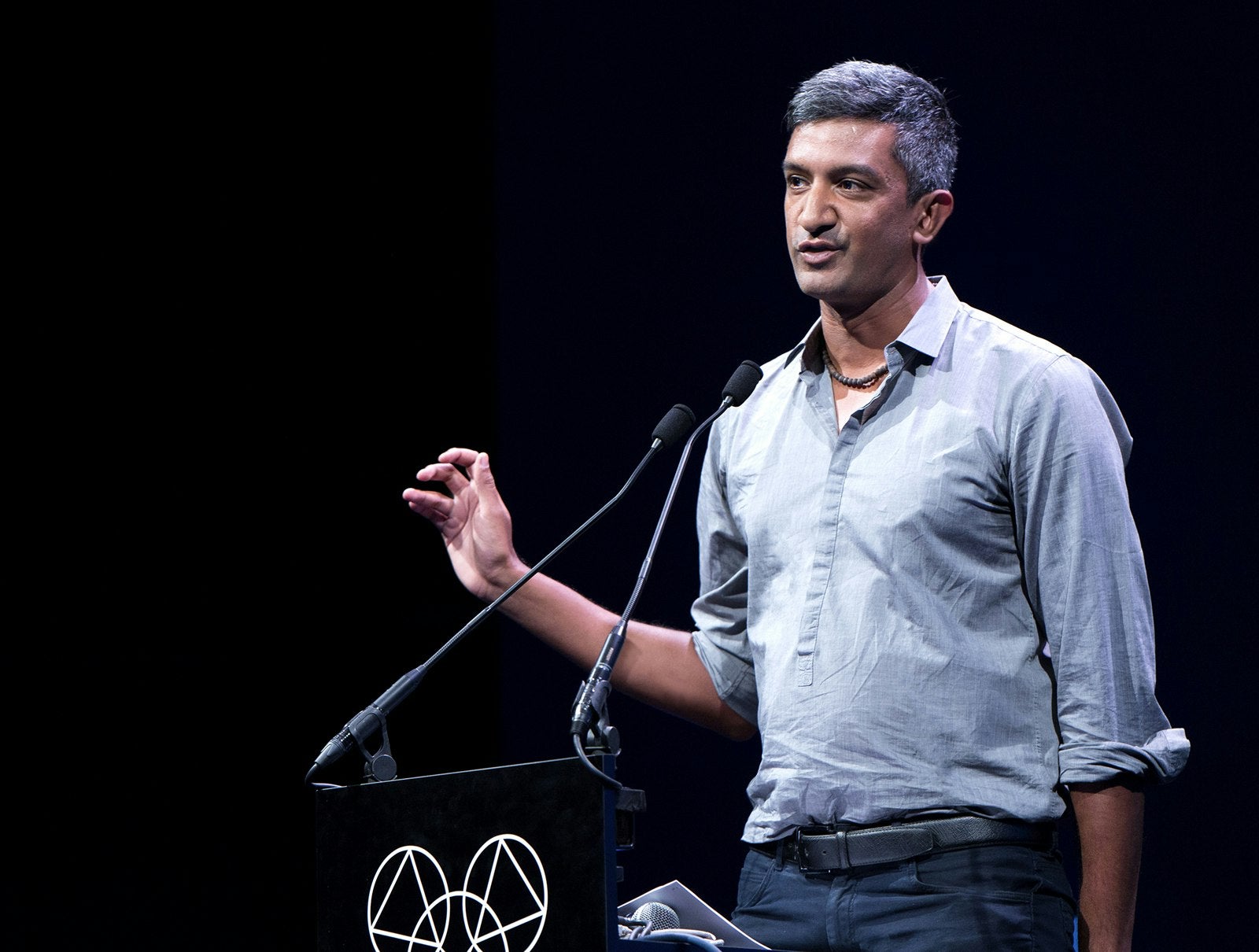Ramesh Srinivasan, UCLA professor of information studies, has published an op-ed for CNN Opinion on “How Silicon Valley is putting our rights at risk.”
With co-author Rene Bermudez, Professor Srinivasan, who directs the UC Digital Cultures Lab, states that, “… it is high time we demand an internet that brings us together in the spirit of debate and discussion, rather than polarization and manipulation,” underscoring the urgency of this need in light of the COVID-19 pandemic and its by-products of hysteria and racism.
“As we all wait out the COVID-19 pandemic together—a captive audience at home in front of our screens—we have front row seats to why unaccountable tech companies are so dangerous,” they write. “No, this isn’t a Netflix original. It’s a pandemic thriller in which both internet virality and biological virality work together to create a political crisis for us all.
“Many of these theories have used the internet to turn what might have a kernel of possible truth into an experience of hysteric certainty. This makes us distrust and stereotype one another, and treat important questions, for example regarding whether a given vaccine is appropriate for a given person or demographic, as a basis to discriminate against one another.”
Srinivasan and Bermudez call for more regulation that will require Facebook, Google, Apple, and other tech corporations to take measures that promote the public good rather than protecting the companies’ interests. They note that although Twitter and Facebook have hired fact-checkers and installed improved algorithms, these are private services, with proprietary code and secrecy around their inner workings.
“Their fact-checking depends on whoever they think is credible,” write Bermudez and Srinivasan. “And though Facebook insists that its fact checkers are certified by Poynter’s International Fact-Checking Network, its engineers and corporate execs get the final say on what counts as truth on their platform.
“The algorithms and corporate decisions that shape our social media feeds are just like the programming that shapes the software that tech companies sell to police departments: hidden. The keys to our democracy shouldn’t be hidden inside black boxes that obscure bias, profit-mongering, and even outright racism.”
Srinivasan and Bermudez propose a Digital Bill of Rights that would provide, “… disclosure and transparency around what data is being collected about us, by whom, and for what purposes. It means public governance and auditing of algorithms and AI/facial recognition systems, monetary compensation for those whose data are being extracted from them to make billions of dollars for secretive investors and executives, and active antitrust investigations into big tech companies to protect the public interest.”
“The majority of us recognize that the private interests dominating the internet are not supporting us as citizens in a democracy or as workers in an increasingly digital economy,” they posit. “It’s now time to move forward with regulations that ask for greater transparency and oversight, if not public governance, of the algorithmic systems that fuel the internet.
“Instead of trusting private corporations that brand themselves as servants of the public, we the people need to have greater power over our technologies and public institutions …Our data are not just numbers, transaction records, clicks, or likes; they are traces of our human creativity, our relationships, and our lives. Collected nearly every moment of our lives, they are ours and no one else’s — and it’s time that we make tech oligarchs recognize this.”
Srinivasan’s 2019 book, “Beyond the Valley: How Innovators Around the World are Overcoming Equality and Creating the Technologies of Tomorrow” (MIT Press), has been featured on Ralph Nader’s “Annual Recommended Summer Reading List.”
Visit this link to hear Professor Srinivasan’s interview on the Ralph Nader Radio Hour.
For an interview with Democracy Now! on President Trump and Twitter, visit this link.
To read Professor Srinivasan’s co-written op-ed in CNN Opinion, visit this link.
